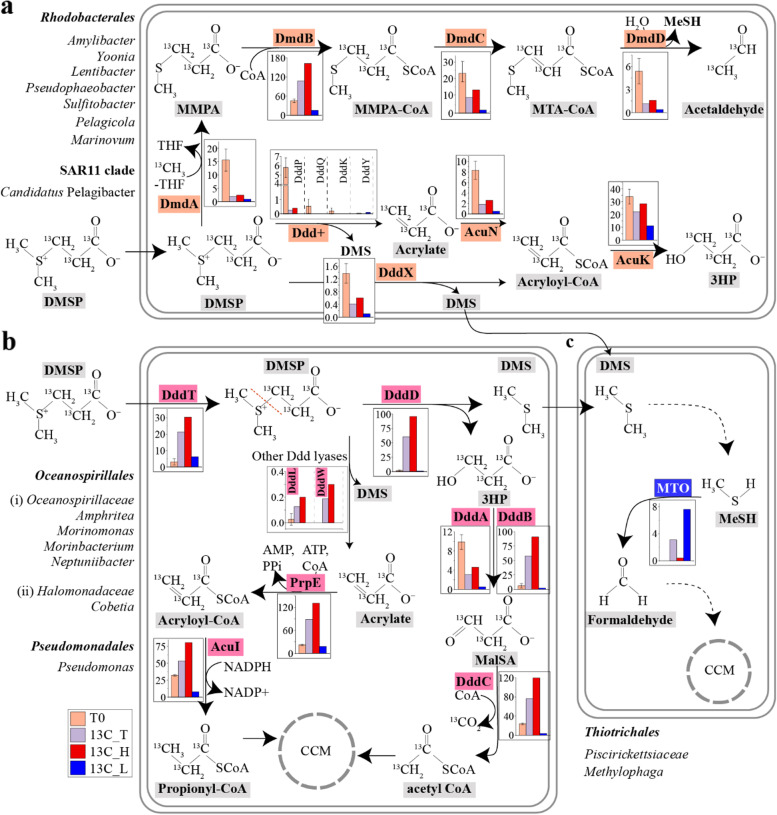Fig. 6.
DMSP degradation pathways in microorganisms from coastal seawater samples. a Although Rhodobacterales (Roseobacter group) and SAR11 dominated the bacterial community of the natural (T0) seawater samples and their DMSP demethylation and cleavage genes (dmdA and dddP mainly) were relatively abundant in the T0 metagenomes (orange bars), the majority of the Roseobacter isolates were not able to grow on DMSP as sole carbon source. Thus, Rhodobacterales and SAR11 are predicted to use DMSP predominantly as a source of reduced sulfur and/or signalling in this coastal seawater. b Oceanospirillales were the major bacteria degrading DMSP for carbon requirements in the seawater incubations with 13C-DMSP. dddD from Oceanospirillales was the most abundant DMSP lyase gene in heavy fractions from samples incubated with 13C-DMSP (13C_H; red bars), although other DMSP lyase genes from Roseobacters, i.e. dddL and dddX were also present. Genes involved in the downstream catabolism of 3HP (dddBC in Oceanospirillaceae and dddAC in the Halomonadaceae) and acrylate (prpE and acuI) were also enriched in the 13C_H metagenomes compared to those from T0 samples. c DNA-SIP experiments showed that Methylophaga, a genus of the Piscirickettsiaceae family, and its gene encoding methanethiol oxidase (MTO) were highly abundant in the metagenomes from the 13C-light fraction (13C_L; blue bars), indicating that these bacteria were the major degraders of the DMS generated from the lysis of DMSP by Oceanospirillales. Bar charts represent the relative abundance of key genes involved in DMSP catabolism in metagenomes from natural (T0) seawater samples, 13C-DMSP incubations (13C_T) and heavy (labelled, 13C_H) and light (unlabelled, 13C_L) fractions from incubations with 13C- DMSP. T0 data show the average of three biological replicates, whereas replicates from 13C-heavy and 13C-light fractions were pooled prior to metagenomics analysis (see the “Methods” section). MMPA, methylmercaptopropionate; MTA-CoA, methylthioacryloyl-CoA; 3HP, 3-hydroxypropionate; MalSA, malonate semi-aldehyde; MeSH, methanethiol; CCM, central carbon metabolism

